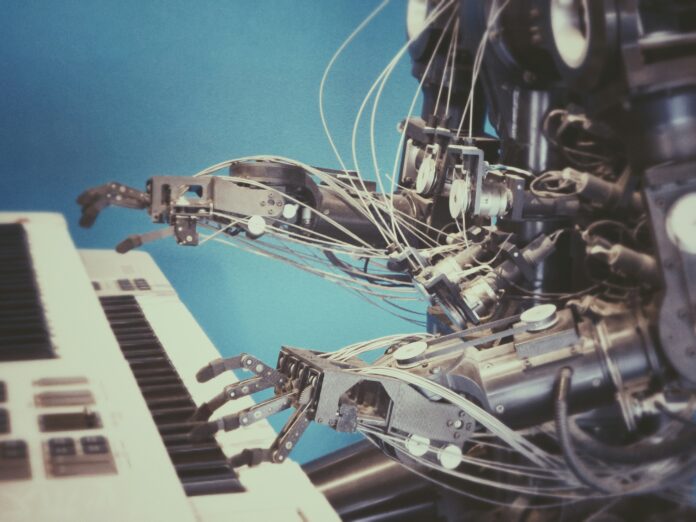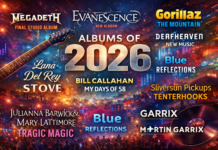In the ever-changing landscape of the music industry, today’s music is an eclectic mix of genres, cultural influences, and technological innovations. With streaming services providing instant access to millions of tracks, music lovers have a vast world of sound at their fingertips. But what exactly defines today’s music, and how has it evolved to where it is now? From the resurgence of older genres to the rise of new subcultures, the music of today is a reflection of societal trends, technological advancements, and the global interconnectedness of the digital age. One of the most profound influences on today’s music is the rise of artificial intelligence (AI), which is reshaping how music is created, produced, and consumed.
1. The Fusion of Genres: Genre Blending as the Norm
One of the most defining characteristics of today’s music is the seamless blending of genres. In the past, genres like rock, pop, hip-hop, jazz, and classical were more distinct and often confined to specific cultural or social boundaries. Today, however, artists frequently fuse elements of multiple genres to create unique and innovative sounds. Hip-hop and pop cross paths regularly, while electronic music continues to infiltrate nearly every genre, from R&B to country.
Artists like Billie Eilish, Travis Scott, and Dua Lipa have popularized genre-blending tracks, incorporating influences from alternative rock, rap, EDM, and even Latin rhythms. This fusion of genres breaks down barriers and gives rise to entirely new sounds, making it harder than ever to categorize modern music.
2. The Influence of Technology: Music Production in the Digital Age
Technology has transformed the way music is produced, distributed, and consumed. The shift from analog to digital production has opened doors for aspiring artists to create music from the comfort of their own homes. Affordable software and digital audio workstations (DAWs) like Ableton Live, FL Studio, and Logic Pro have democratized music production, allowing anyone with a computer and some creativity to produce high-quality tracks.
Moreover, the rise of artificial intelligence (AI) is beginning to impact the production process. AI algorithms can now assist in composing music, producing beats, and even mimicking the style of famous artists. Some experimental projects have used AI to generate entire songs, blending human creativity with machine learning. While this technology is still in its early stages, it’s clear that the future of music production will be heavily influenced by AI.
Streaming platforms, such as Spotify, Apple Music, and YouTube, have reshaped how artists and fans interact. These platforms not only offer unprecedented access to music but also use algorithms to suggest new songs based on a listener’s preferences. This has led to the rise of curated playlists, personalized listening experiences, and a more direct connection between artists and their audience.
3. The Impact of Social Media and Viral Trends
Social media platforms, especially TikTok, have had an enormous influence on today’s music scene. Songs that go viral on TikTok often experience a massive surge in popularity, leading to mainstream success. The platform’s short-form video format encourages users to create creative, danceable, or humorous content around songs, allowing new artists and trends to quickly gain traction.
TikTok has also introduced the phenomenon of “audio snippets” – short sections of songs that can be used as soundtracks to video posts. These clips can help launch songs into the spotlight, often bypassing traditional radio or music video channels. Artists like Lil Nas X, Olivia Rodrigo, and Doja Cat owe much of their rise to fame to the virality of their songs on TikTok.
Social media also provides a direct and constant way for artists to engage with their fanbase, leading to more personal connections between musicians and their listeners. Whether it’s through Instagram stories, Twitter posts, or YouTube vlogs, fans can interact with their favorite artists, witness their creative processes, and even influence their work.
4. The Revival of Vinyl and Nostalgia for the Past
While digital music streaming is undoubtedly the dominant force in today’s music industry, there has been a surprising revival of vinyl records. Vinyl’s resurgence is more than just a nostalgic trend; it’s a cultural movement rooted in the tactile and authentic experience of music. Listening to music on vinyl has become an aesthetic choice for music lovers who value the warmth, depth, and imperfection of analog sound. Record stores have once again become popular destinations, and collectors are keen to get their hands on limited-edition releases or special pressings.
The revival of vinyl can also be seen in the return to older music production techniques. Some artists are revisiting the sounds of the past, incorporating retro elements into their modern music. Genres like disco, synthwave, and 80s-inspired pop have made a significant comeback, reflecting a collective cultural desire for nostalgia in a world that often feels chaotic and fast-moving.
5. The Role of Social Issues and Activism in Music
Today’s music is more socially conscious than ever before. Artists are using their platforms to address a wide range of social issues, from racial justice and gender equality to climate change and mental health. Hip-hop, in particular, has been a powerful medium for activism, with artists like Kendrick Lamar, J. Cole, and Megan Thee Stallion addressing themes of social inequality, empowerment, and resistance.
The Black Lives Matter movement has inspired numerous protest songs, while the #MeToo movement has influenced the lyrical content of pop and rock music. Artists such as Beyoncé, Childish Gambino, and H.E.R. have used their music to spark conversation and encourage social change.
Additionally, LGBTQ+ rights and representation in music have gained increased attention. Artists like Sam Smith, Lil Nas X, and Troye Sivan have openly embraced their identities, helping to normalize LGBTQ+ presence in mainstream music. Their music has become a voice for inclusivity and diversity, offering support to marginalized communities.
6. The Globalization of Music: A More Diverse Soundscape
Globalization has made today’s music more diverse than ever before. Genres that were once regional or niche have spread across the globe, influencing mainstream sounds. Latin music, with artists like Bad Bunny, J Balvin, and Rosalía, has become a dominant force in global pop culture. K-pop, led by groups like BTS and BLACKPINK, has reached international acclaim, drawing millions of fans from all corners of the world.
This cross-cultural exchange has brought about new collaborations, hybrid sounds, and a more inclusive global music scene. Artists no longer feel confined to their own countries or regions; instead, they embrace influences from all around the world. The rise of multiculturalism in music is opening up opportunities for musicians to experiment and create sounds that are more inclusive and reflective of global interconnectedness.
7. The Future of Music: What’s Next?
As we move forward into the future, the music industry will continue to evolve in response to new technologies and cultural trends. Virtual reality (VR) and augmented reality (AR) are expected to play a larger role in live performances, offering fans immersive experiences from the comfort of their own homes. AI and machine learning will continue to shape how music is created, produced, and consumed.
In addition, the rise of decentralized platforms and blockchain technology may transform the music industry’s economic model. Artists could have more control over their music and earn a greater share of the revenue generated from streaming, reducing the influence of traditional record labels and streaming giants.
The Constant Evolution of Sound
Today’s music is as diverse, dynamic, and innovative as the world we live in. From genre-blending tracks and digital innovations to the resurgence of vinyl and socially-conscious lyrics, the music of today reflects the changing times and technological advancements shaping our lives. The influence of AI, in particular, has played a critical role in transforming how music is created and experienced, making it an essential part of the music industry’s future. What’s clear is that music will continue to evolve, adapt, and provide a soundtrack for the next generation, giving them a voice, a sense of identity, and a way to connect with the world around them. The future of music promises to be just as exciting, diverse, and transformative as the present.

Photo by Possessed Photography on Unsplash
Views: 7






